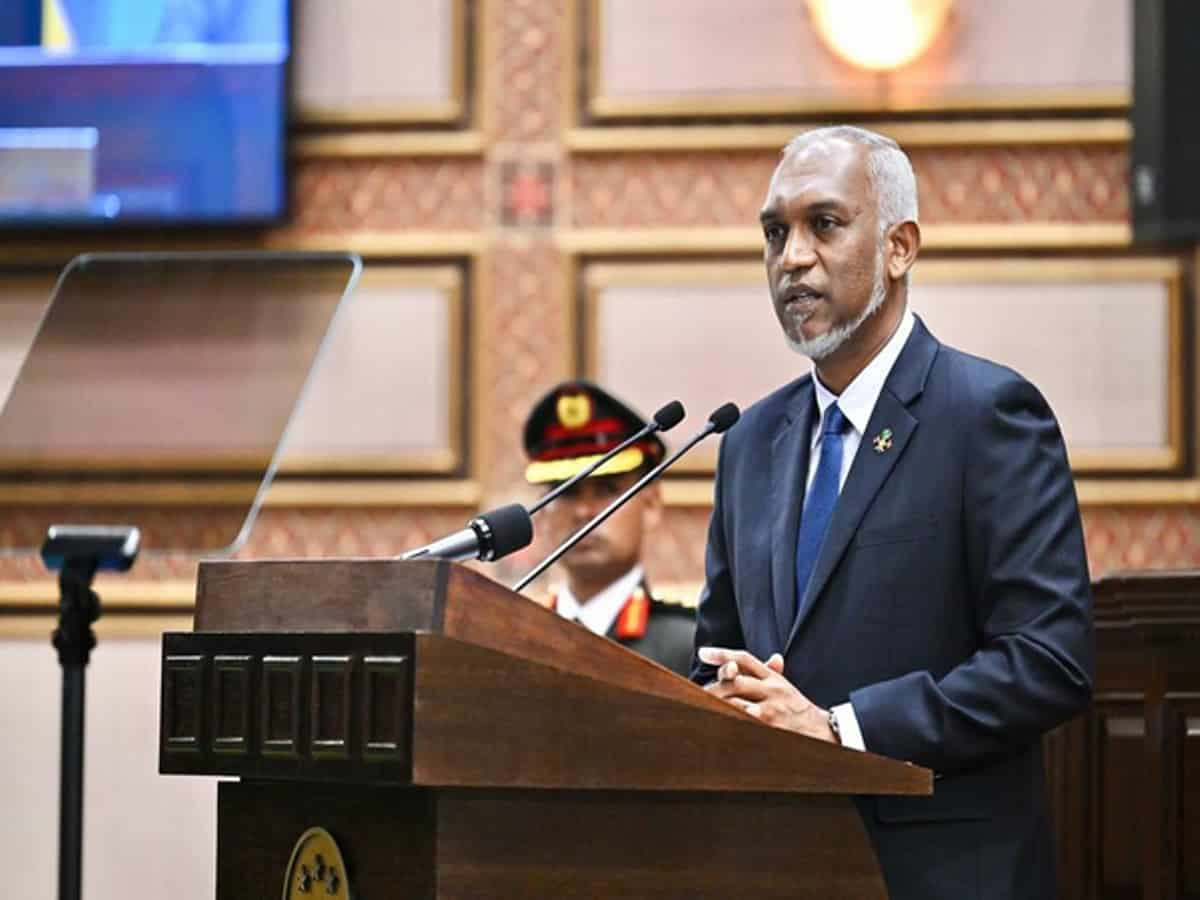
New Delhi: Without significant policy changes, the overall fiscal deficits and public debt are projected to stay elevated in the Maldives, even as the South Asian nation remains at high risk of external and overall debt distress, the International Monetary Fund (IMF) said in a statement.
Amid elevated fuel prices coupled with continued strong import demands, the current account deficit in 2024 is projected to remain large, albeit gradually narrowing over the medium term.
The Maldives is highly vulnerable to climate change risks, with potentially severe economic costs due to floods and rising sea level, the IMF said.
The Maldives’ post-pandemic growth has been strong, but recently normalised. Growth is projected at 5.2 per cent in 2024, as tourist arrivals are expected to rise further.
Nevertheless, fiscal and external vulnerabilities have increased, calling for urgent policy adjustment, the IMF said.
A sustained fiscal consolidation, accompanied by tighter monetary and macroprudential policies, is needed to reduce vulnerabilities and restore the sustainability of public finance and debt. In this regard, the authorities are taking a welcome step to develop an ambitious and homegrown fiscal reform agenda and are committed to urgently implement this.
An IMF mission, led by Piyaporn Sodsriwiboon, visited Male during January 23-February 6, 2024, to discuss the recent economic developments, the outlook, and the country’s policy priorities in the context of the 2024 Article IV consultation.
